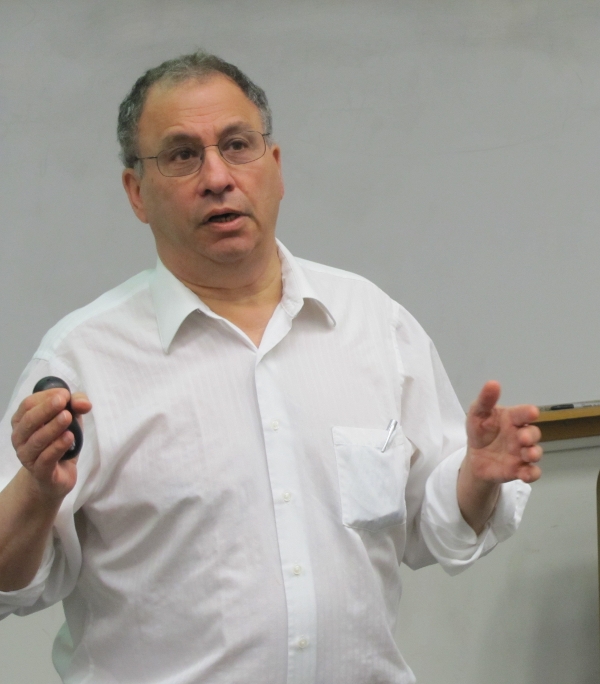NIMBioS Seminar Series
In conjunction with the interdisciplinary activities of the National Institute for Mathematical and Biological Synthesis (NIMBioS), a seminar series on topics in mathematical biology will be hosted at NIMBioS every other Tuesday at 3:30 p.m. (unless otherwise noted) in the Hallam Auditorium, Room 206, Claxton Building, 1122 Volunteer Blvd. Seminar speakers will focus on their research initiatives at the interface of mathematics and many areas of the life sciences. Light refreshments will be served beginning 30 minutes before each talk. Faculty and students from across the UT community are welcome to join us.

Time/Date: Tuesday, November 13, 2012, 3:30 p.m.*
Note Special Location:
M309 Walters Life Sciences Bldg.
Speaker:
Simon Levin, George M. Moffett Professor of Biology, Princeton Univ.; NIMBioS Postdoctoral Fellows Invited Distinguished Visitor
Topic:
Evolutionary perspectives on discounting, public goods and collective behavior
Abstract:
Ecological and economic systems are alike in that individual agents
compete for limited resources, evolve their behaviors in response to
interactions with others, and form exploitative as well as cooperative
interactions as a result. In these complex adaptive systems, macroscopic
properties like the flow patterns of resources like nutrients and
capital emerge from large numbers of microscopic interactions, and feed
back to affect individual behaviors. Contagion can lead to critical
transitions from one basin of attraction to another, as for example with
eutrophication, desertification, pest outbreaks, and market collapses.
In both sorts of systems, evolution of one type or another leads to the
differentiation of roles and the emergence of system organization, but
with no guarantee of robustness. It is crucial to understand how
evolutionary forces have shaped individual behaviors in the face of
uncertainty. In this talk, I will explore the common features of these
systems, especially as they involve the evolution of intragenerational
and intergenerational resource allocation and the evolution of
cooperation in dealing with public goods, common pool resources and
collective movement. I will describe examples from bacteria and slime
molds to vertebrate groups to insurance arrangements in human societies.
*Join us for refreshments at 3 p.m.
Seminar Flyer (pdf)
Please contact Dr. Andrew Kanarek at kanarek@nimbios.org if you are interested in meeting with Dr. Levin.
For more information about this and other NIMBioS Seminars, visit /seminars.

NIMBioS
1122 Volunteer Blvd., Suite 106
University of Tennessee
Knoxville,
TN 37996-3410
PH: (865) 974-9334
FAX: (865) 974-9461
Contact NIMBioS


